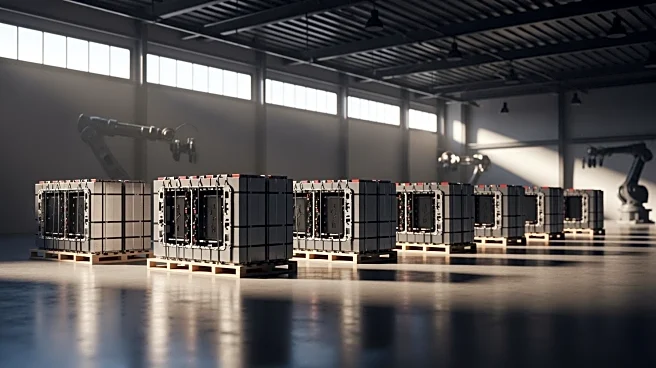What's Happening?
Researchers are exploring the conversion of bio-tar, a by-product of biomass energy production, into bio-carbon. This process could transform a problematic waste product into a valuable resource. Bio-carbon has potential applications in water purification, clean energy storage, and as a catalyst in industrial processes. The conversion process involves polymerization, where small molecules in bio-tar form larger carbon structures. This development could address technical challenges in the bioenergy industry and create materials with high economic value.
Why It's Important?
The conversion of bio-tar into bio-carbon represents a significant advancement in sustainable energy and environmental protection. By turning a waste product into a resource, this process could reduce environmental risks associated with bio-tar disposal and enhance the efficiency of biomass energy systems. The potential applications of bio-carbon in clean energy and pollution control could lead to reduced carbon emissions and improved environmental outcomes. This innovation could also provide economic benefits by creating new markets for bio-carbon products.
What's Next?
Further research is needed to optimize the bio-tar conversion process and scale up production. Combining laboratory experiments with computer simulations and machine learning could enhance the efficiency and effectiveness of bio-carbon production. Collaboration between scientists and industry partners will be crucial to overcoming challenges and realizing the full potential of this technology. Successful implementation could lead to widespread adoption of bio-carbon in various industries, contributing to a more sustainable and environmentally friendly future.










